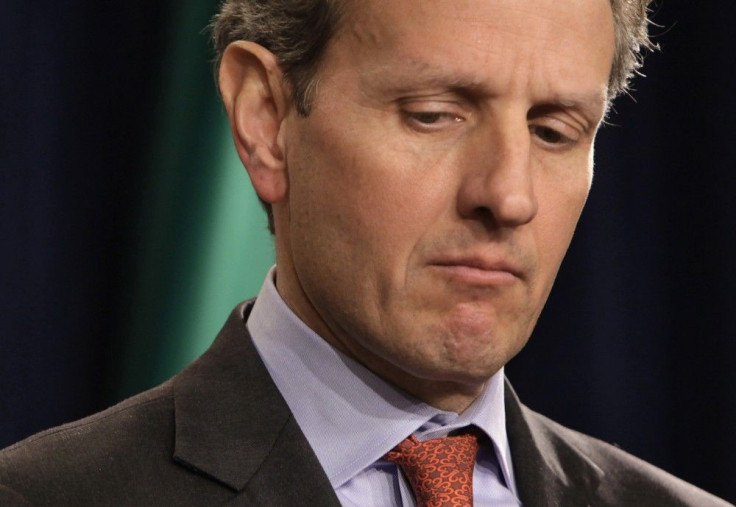Retrospective Tax Law: US Seeks Reassurance From India

US Treasury Secretary Timothy Geithner pressed India’s Finance Minister Pranab Mukherjee on Thursday for reassurance that New Delhi welcomes foreign capital and remains committed to boosting bilateral trade and investment, following concerns connected to India's newly proposed retrospective tax measures.
Geithner asked Mukherjee to reassure foreign investors that India will continue to welcome foreign capital, by advancing important economic reforms that will increase opportunities for bilateral trade and investment and strengthen India’s business climate through greater transparency and predictability, Treasury spokeswoman Kara Alaimo said.
The Secretary noted that certain tax provisions in India's fiscal year 2013 budget have raised significant concern amongst US industry and dampened enthusiasm about India's investment climate, she continued. Secretary Geithner also noted that the Treasury Department is examining India's proposed tax provisions to determine their impact on the US-India bilateral income tax treaty, she added.
The US businesses and trade groups are concerned that there are outlines in India's budget for 2012-13 that propose retroactive claims to be demanded on overseas corporate deals. The business and trade groups, including the US Chamber of Commerce, the US-India Business Council and the Financial Services Forum, wrote to Geithner requesting him to intervene in the matter.
Despite assertions by Indian officials that these retroactive provisions are in accordance with global tax practices, the amendments are much broader in scope and extend for a far longer period of time, the US groups said.
These proposed amendments will have a significant negative effect on our companies, customers and shareholders, and investors in India, they added.
Mukherjee, who is in Washington for meetings of the World Bank and International Monetary Fund, unveiled in March a series of amendments in the Finance Bill 2012, which included the proposal to have retrospective tax legislation. Under this legislation, a capital gains tax will be enforced upon on merger and acquisition deals carried out aboard where the primary asset is situated in India. Mukherjee proposed to amend the Income Tax Act to bring overseas deals under tax net with retrospective effect from 1962.
Vodafone's Dutch subsidiary, Vodafone International Holdings BV, has already threatened to pull the government of India to arbitration proceedings under the bilateral investment treaty (BIT) between India and the Netherlands. Vodafone, in a regulatory filing to the London Stock Exchange, has said that the retrospective aspects of the proposed legislation will have to be abandoned or suitably amended by the government of India.
In March, major business and trade groups sent a letter to Indian Prime Minister Manmohan Singh objecting to the proposed tax changes. They warned that the retrospective tax would discourage new investments in India.
However the position of the government of India is that when the underlying assets are in India, they are subject to tax in India and that the current amendment is only a clarification. We will have to decide whether India will be a no tax country or India will tax . If the answer is yes that it will be taxed, then whether to be taxed in India or at source of the company. Then comes the question how it is being protected from Double Tax Avoidance Agreement and tax exchange information in India, Mukherjee said earlier this month.
© Copyright IBTimes 2025. All rights reserved.




















